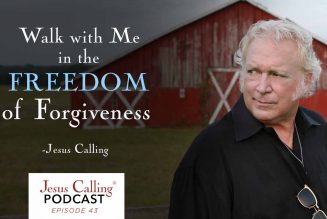
What Culture Is Made Of
The three “ingredients” of culture are truth, goodness, and beauty. Truth deals with facts, with the way things are. Goodness speaks to what is morally right, or the way things ought to be. Beauty relates to what is pleasing and to what can be imagined.
It’s no surprise that Christians are lovers of truth and goodness. After all, Jesus himself said, “You shall know the truth, and the truth shall set you free” (John 8:32). Meanwhile the Scriptures are filled with clear words from God about what is good that is to be emulated and upheld, as well as what is evil that is to be avoided and restrained.
When it comes to beauty, however, the church has a bit of a rocky relationship. We seem unsure of its role and importance in the Christian life. We’re apathetic about beauty, and we tend to be suspicious of those who call for a consideration of its significance. This mindset has left most Christians with a view of God’s world that works about as well as a two-legged stool.
Obviously, the truthfulness of a claim and the goodness of an action are not dependent upon the beauty of either. That is to say, without beauty, truth and goodness are still true and good. There is nothing wrong with those “ingredients.” But without beauty, the cultural “recipe” is incomplete.
What Beauty ‘Does’
A man named Blaise Pascal made some important observations along these lines many years ago. He was a Christian thinker whose mind was an unending spring of brilliance and profundity. (Don’t feel bad if you haven’t heard of him, though. He made his living as a mathematician, and he was a Frenchman by birth, two strikes against him on the count of some.)
In his brief essay “The Art of Persuasion,” Pascal wrote, “Every man is almost always led to believe not through proof, but through that which is attractive” (“The Art of Persuasion,” II). He adds, “[T]he mind and the heart are like gateways through which [truths] are received by the soul, but very few enter through the mind…” (“The Art of Persuasion,” V).
His claims have driven some to anger and others to fear. They wonder, “Won’t we lose the hard edges of truth and the firm lines of goodness if we reduce our persuasion to that which is appealing?”
Make no mistake, Pascal is not arguing for “sugar coating” morality or “watering down” the truth. Rather, he is claiming that all people—whether we like it or not—are mainly led by their passions and not by propositions.
You may hate that fact. You may decry that state of affairs. You may diligently labor to demonstrate the truthfulness of the truth apart from beauty. But in all this people will still “believe almost only in the things [they] like” (“The Art of Persuasion,” IV).
The Way Forward
Emphasizing truth and morality, we have tried to show that the Christian view of the world is reasonable (to the mind) and beneficial (for society). These aims are both good and necessary; we dare not abandon either. Without emphasizing beauty, however, we have failed to show that Christianity is attractive, that it is beautiful.
We must not fear the idea that true beauty is an indication of truth and goodness, for God himself designed it this way. After all, he dwells in stunning splendor and clothes himself with awe-inspiring majesty (Job. 37:22). His glory is beyond compare. Moreover, all God’s actions tend to the beautification of his people (Psalm 149:4), the bride of Christ who is arrayed in stain-free gown of dazzling white, adorned with beauty for the return of the long-awaited bridegroom (Rev. 21:2).
What this means is that Christians should not only seek to convince others with truth and compel them with morality, but we must also seek to attract with beauty. In other words, in addition to defending Christianity as being both true and good, we must also present it as beautiful—because it is.
We’ve got the truth and goodness bit down when it comes to logic and moral laws. What we need is a portrait of truth and goodness as beautiful and compelling as God says it really is. Since God is inherently beautiful, we must be able to speak about him “in spirit and in truth.”
What is needed is a response that takes into consideration the beauty of Truth. We’ve got the truth portion down when it comes to propositions. What is needed is a beautiful and compelling portrait of the who is Truth-in-the-flesh, Jesus. After all, it is no accident that Jesus himself said his followers would be known not by their truth claims or their righteousness (both of which are important), but by their love for one another (John 13:35).
And shortly after Jesus uttered those words, his predictions were already coming true. Roman officials were astonished by the early Christians, not because of their claims to truth and their moral codes of living, but by the beauty of their love for each other. As the early Christians cared for the members of their community, the Roman officials exclaimed, “See how they love each other!”
Of course, we ought never abandon the truth of the faith. Jesus really died and rose for us. If that didn’t happen, it doesn’t matter how beautiful the Christian story may be. Secondly, we should never think that God’s moral commands are irrelevant. “So long as we know the truth and we try to love people…” No, that won’t work. God’s commands are not suggestions. They are designed to show us what is good, and they illustrate what a beautiful world would look like. All three of these “ingredients” work together to shape and form us as well as the culture around us. But without beauty, truth and goodness seem cold, callously, rigid, and harsh.
What the world needs is to see a community who believes the truth and embraces God’s commands in such a way that it shows the intrinsic beauty of Jesus’ way of life. In this way beauty will save the world.
Doug Ponder is one of the founding pastors of Remnant Church in Richmond, VA, where he serves in many of the church’s teaching ministries. He has contributed to several published works and is the author of Rethink Marriage & Family. His interests include the intersection of theology, ethics, and the Christian life. Follow him on Twitter @dougponder.










